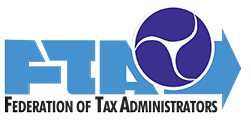|
RESOLUTION 2021-1
Federal Mobile Workforce Legislation
Background
The fundamental principle of individual income taxation is that income is taxable where it is earned or where the services giving rise to the income are performed. In addition, the taxpayer’s state of residence may tax all income regardless of where it is earned, although if that state also taxes the income of nonresidents earned in the state, the state must offer a credit to its residents for taxes paid to other states. This is the same tax policy embraced by the U.S. government and by all other income-taxing governments.
As work patterns shift to include more interstate commuting, telecommuting and multistate travel, more workers find themselves with tax obligations to more than one jurisdiction. Likewise, employers are faced with an increased responsibility for withholding income taxes for multiple jurisdictions where they may have no other operations. Not all states have clear de minimis thresholds for the imposition of tax and withholding obligations.
Federal legislation has been introduced in Congress for the past 15 years that would limit a state’s taxation of income earned within its borders. Most recently, bills such as the Mobile Workforce State Income Tax Simplification Act and the Remote and Mobile Worker Relief Act of 2021 generally would prevent a state or locality from imposing an income tax liability on a nonresident employee unless that employee performs employment duties for more than 30 days in the state. The bills would also relieve employers of the duty to withhold in that case and would also relieve employers from any penalties for failure to withhold if they rely an employee’s estimate of where the employee expects to be in the coming year. There are certain exceptions to these rules. The 30-day limit is expanded to 90 days during the pandemic.
In response to these bills, the Multistate Tax Commission developed a state model mobile workforce statute. This model provides relief for employers and employees but does so in a way that avoids potential administrative or enforcement problems that would be created under provisions of the federal legislation. The work product reflects input from industry and employer representatives.
Resolution
FTA opposes such federal legislation for the following reasons:
- The legislation represents a substantial preemption of, and intrusion into, state tax authority;
- As with all such federal preemption legislation, there is no authority that can issue binding administrative guidance, which requires that states and taxpayers resort to litigation to resolve any ambiguities or difficulties in applying the legislation;
- The 30-day threshold, which includes only working days, is longer than necessary to protect the vast majority of traveling employees;
- The federal legislation does not contain a high-wage exception, which would be simple to apply by looking to the employee’s prior-year wages;
- States are not actively enforcing tax or withholding obligations on those with de minimis in-state activity; and
- “Nowhere” wages might potentially occur, where the state in which the employee normally performs employment duties cannot tax those wages and neither can the state where employee is temporarily performing the employment duties.
The FTA supports state legislation to clearly provide a safe-harbor threshold for traveling employees that sets reasonable minimum standards, similar to the MTC model mobile workforce statute.
This resolution shall automatically terminate three years after the Annual Business Meeting at which it is adopted, unless reaffirmed or replaced in the normal policy process. Passed by unanimous voice vote by the membership on June 25, 2021, with abstentions by Alaska and New Hampshire.
|
